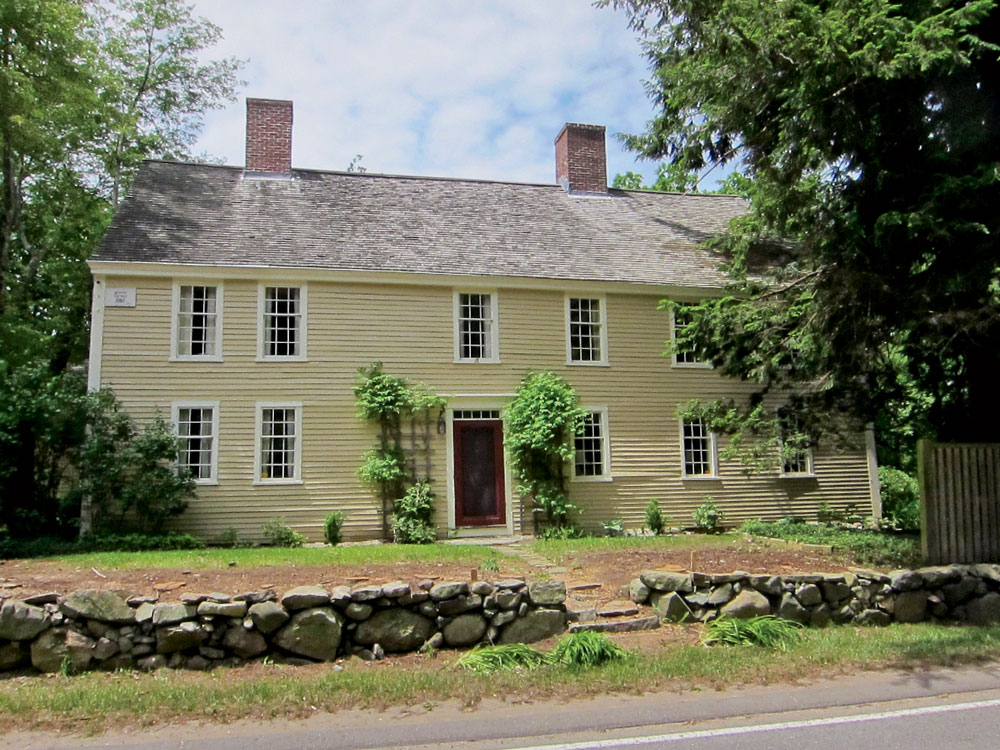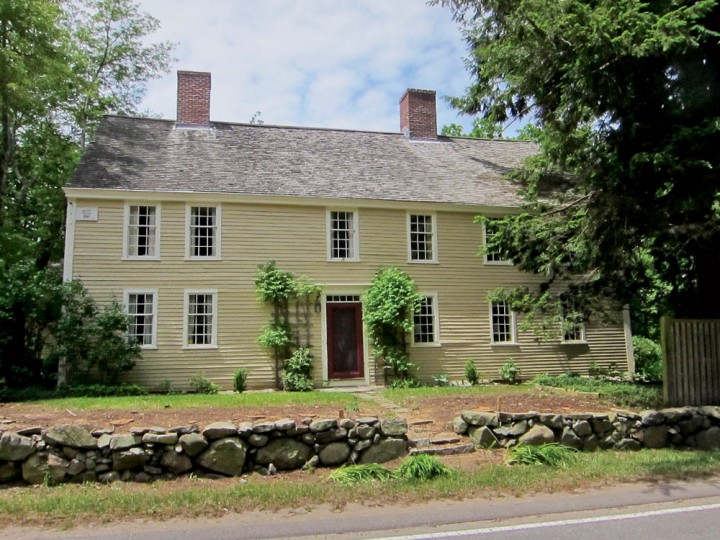How Does the National Register of Historic Places Work? | Ask the Expert
Does your property belong on the National Register of Historic Places? Since 1966, when it was created under the authority of the National Historic Preservation Act, the National Register of Historic Places has been identifying America’s historic resources and listing those most worthy of preservation. That list now includes more than 90,000 properties. Inclusion signifies […]

Built c. 1762, the historic Reeves Tavern (now a private home) in Wayland, Massachusetts, is currently under consideration for National Register designation.
Photo Credit : Gretchen SchulerDoes your property belong on the National Register of Historic Places?

Photo Credit : Gretchen Schuler
Since 1966, when it was created under the authority of the National Historic Preservation Act, the National Register of Historic Places has been identifying America’s historic resources and listing those most worthy of preservation. That list now includes more than 90,000 properties. Inclusion signifies importance but doesn’t guarantee preservation. As the director of the National Register program for the Massachusetts Historical Commission, Betsy Friedberg has overseen scores of evaluations. She spoke with us recently about the Register and its role.

Photo Credit : Drew McCoy
Significance
“In evaluating properties for the National Register, we look at whether a property or district is significant, and whether it retains its ability to convey its significance,” Friedberg says. Connections to historic events, architectural developments, or significant people are important considerations. In some cases—an archaeological site, for instance—a resource may be included because of its potential to reveal information in the future. “Most of the properties we list tell a story of their community,” Friedberg adds. “National Register nominations are the vehicle for conveying that story.”
Community Expertise
The Register program relies on information from individuals and communities, which is evaluated by the State Historic Preservation Office before a nomination is prepared. “We look to the community to bring forward properties that might have been overlooked but are significant and worthy of preservation,” Friedberg says. “There’s no greater expert on what’s important to a community than the community itself.”
Where to Start
In some cases, properties that don’t qualify for listing on their own may still be eligible as part of an ensemble of buildings, structures, or landscape features: a National Register district. If you believe that your property merits consideration, Friedberg recommends starting at your state historic preservation office, where useful information may already be on file. Each state has somewhat different pro-ce-dures for evaluation and nomination, but all are based on guidelines from the National Register. “Many property owners love to do research and have done a lot on their own, which is great,” Friedberg says. “But when it comes to the actual nomination, we may still recommend the assistance of a preservation consultant, who under-stands what it takes to put together a nomination and can focus [owners’] efforts.”
Happy Surprises
Every once in a while, a request comes in to consider a property that is already listed. “Before 1980, there wasn’t a requirement that owners be notified about the designation when a property changed hands,” she notes, “so sometimes people contact us and we can give them a happy surprise.”
What to Expect
Don’t expect a speedy process. “We don’t bring nominations forward until we feel that they’re complete,” Friedberg says. Expect several rounds of questions and requests for more information before your nomination is deemed ready to be brought before the state review board. In Massachusetts, there may be as many as 50 properties ahead of yours in the queue, and the board meets four times a year, voting on five to eight nominations per session. Finally, successful nominations are sent to the National Park Service forreview and listing.
More info at: nps.gov/nr
Joe Bills
Associate Editor Joe Bills is Yankee’s fact-checker, query reader and the writer of several recurring departments. When he is not at Yankee, he is the co-owner of Escape Hatch Books in Jaffrey, NH.
More by Joe Bills

